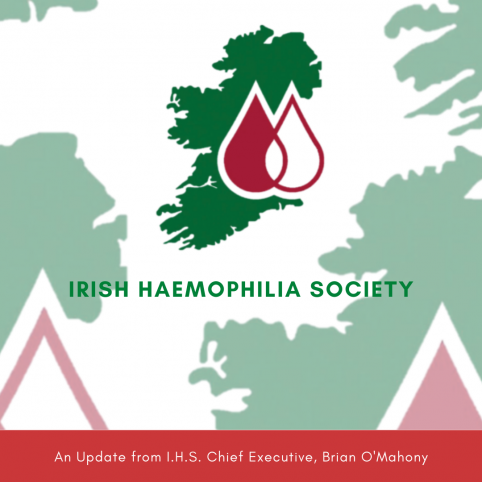iPATH Research Programme
Today, Friday June 5th, we had a very interesting presentation by Prof. James O’Donnell from the NCC on the Irish Personalised approach to the Treatment of Haemophilia (iPATH) Research project. The project is divided into 4 distinct work packages which will examine some of the fundamental aspects of the biology of haemophilia. This will include looking at why some people with severe haemophilia bleed much more or less frequently than others and why some people develop inhibitors and others do not. The project will involve carrying out a full genome analysis on each participant. This, when viewed in collaboration with their bleeding history and replacement therapy use, should provide information which will be very useful in answering some of these fundamental questions and in individualising haemophilia care.
One size does not fit all in terms of treatment. It is notable from the research that 1 in 10 people with severe haemophilia do not develop joint bleeds but 1 in 12 of those with moderate haemophilia require prophylaxis due to their bleeding tendency. The physiotherapy work under work package 1 used sophisticated and detailed tools to look at fitness, body composition and physical activity. The findings showed a significant level of physical inactivity, increased weight and lack of cardiovascular fitness among the group of 54 people with haemophilia who enrolled. Chronic joint arthropathy, pain and functional disability definitely contributed to these findings, but it is clear from the research that people with severe haemophilia need to consider greater levels of physical activity, more cardiovascular fitness and better weight management. An individualised approach will be required. As a result of these findings and in line with improved treatment options over recent years and into the future, the Society have made proactive lifestyle improvements a key feature of our new strategic plan for members.
The focus in the future will not just be on preventing bleeding episodes but improving health, fitness and quality of life and promoting sustainable physical activity. A pilot programme Gym/Exercise class for some older adults with severe Haemophilia over an 8-week period has just been completed with the physiotherapy team from the NCC. We hope to see this type of programme rolled out to benefit many members over the coming months and years.
Zoom Meetings
We have some very exciting and interesting Zoom topics on the way for members including an update on the New National Children’s Hospital from Development Board CEO Eilish Hardiman, a talk on heavy menstrual bleeding from gynaecologist Dr. Geraldine Connolly and a view on where Haemophilia care and treatment will be by the year 2030 from Prof. Mike Makris from the UK.
WFH Virtual Summit
The WFH International Congress which is normally held every second year was due to take place in Malaysia from June 14th to 19th. This has always been a very interesting conference where attendees can be updated on all the scientific, clinical and treatment developments in addition to enjoying sessions aimed at people with haemophilia or parents. Of course, the cost of attending between registration fees, flights and accommodation put it outside the reach of most people. The Conference for this year has been cancelled and, in its place, WFH have organised a virtual conference or summit. The good news is that registration is free of charge. This is perhaps a once in a lifetime opportunity for many people with haemophilia or parents to attend a WFH Conference/ summit for the entire summit or for sessions or lectures of particular interest. We would encourage members to consider registering and attending to hear from some of the best speakers globally on haemophilia and bleeding disorders.
The programme for the summit can be viewed here
The registration form can be accessed here
Brian O’Mahony
Chief Executive
